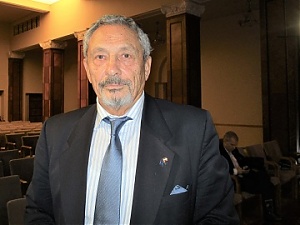Analytics, Ecology, EU – Baltic States, Modern EU
International Internet Magazine. Baltic States news & analytics
Friday, 19.12.2025, 05:46
EGD’s postponement until summer 2020
 Print version
Print version |
|---|
In fact, so-called “green transition mechanism” will
includes about € 100 billion EU funds targeted to the most vulnerable in the
environmental sense European regions and economy sectors. The EGD has a very
broad roadmap, which also includes such issues as biodiversity and
re-forestation, green agriculture and quality food, green cities and circular
economy, to name just a few.
Communication on the key actions in the “Road Map” in:
https://ec.europa.eu/info/sites/info/files/european-green-deal-communication-annex-roadmap_en.pdf
Private sector has seen already advantages in the “green
deal”: in the beginning of December 2019, some fifty European largest
investors, representing about € 6 trillion of assets, expressed their desire
for a quick adoption of the EU-wide climate regulations aimed at European
climate neutrality goal by 2050. Such a legal background would give corporate
community solid confidence to make long-term investment decisions for modern
sustainable growth patterns.
Each EU state has to find its own path to the “green
future”, though the ultimate common goal must be unanimously approved: the
“passive” states cannot get advances at the expense of the active ones. And
that has to include a strong political will: all the EU member states have to
change both the production and consumption schemes. However, if companies
invest in clean technologies, they cannot face unfair competition from heavy
polluters; a corresponding instrument is envisaged in the EU’s “carbon border
adjustment mechanism”, which is in full compliance with the WTO rules.
Thus, the EGD is both about reducing emissions and a number
of other “things”, e.g. like boosting innovation, food quality, reducing all
sort of wastes and new “green businesses”. It is about turning the green
transition into both green and business opportunities. Already at present there
are numerous positive examples: e.g. converting plastic waste into furniture,
farmers are using satellites data to adapt to climate change, “made in Europe”
batteries for electric cars, and so on and so forth.
During the UN Climate Change conference in Madrid (COP-25),
the European Investment Bank (EIB) has announced that it has invested €76.5 million
in one of the largest solar projects in Spain, demonstrating its strong
commitment in regards to the promotion of clean energy production in the
country. The project is sponsored by Encavis
AG, a leading independent producer of renewable energy, and Solarcentury, a global integrated solar
power company, and comprises the construction and operation of a 300 MWp
photovoltaic solar plant in the cohesion region of Extremadura; the transaction
is supported by the European Fund for Strategic Investments, EFSI.
Reference: https://ec.europa.eu/commission/presscorner/detail/en/IP_19_6746
The European Council promised to come back to this issue in
June 2020, as the latest and during the next summit in March.
See more in the Council concluding statement at: https://www.politico.eu/article/eu-fails-to-find-unanimity-on-2050-climate-neutrality-goal/








 «The Baltic Course» Is Sold and Stays in Business!
«The Baltic Course» Is Sold and Stays in Business!

